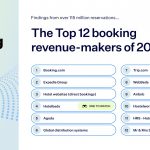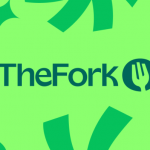Successful hotel managers are constantly looking for ways to increase their revenue-generating potential.
NB: This is an article from Lybra, one of our Expert Partners
Data is now readily available to track and analyse market demand and identify market segments. Revenue management assistants do an excellent job of monitoring hotels’ performance and competitors’ rates in real time. From these, hotel managers can come up with strategies that will help increase their hotels’ revenue.
Subscribe to our weekly newsletter and stay up to date
This article discusses the three most important strategies hotel revenue managers must use to boost revenue and how a revenue management system (RMS) is being used to forecast demand and automatically perform dynamic pricing.
Dynamic pricing
Dynamic pricing in hotel revenue management refers to a strategy used in the industry to ensure maximum occupancy for a hotel, based on demand and supply. This strategy uses algorithms to analyse data fluctuations in order to calculate prices in real time. For this reason, it is sometimes referred to as time-based pricing. Factors like current occupancy, seasonality and competitor pricing, which influence market demand, are all taken into consideration.
A pragmatic hotel manager aims to reduce the chance that a room in their hotel goes unsold and tries to maximise the price to be paid when that room is sold. This is often achieved by implementing rates that fluctuate based on market demand. The hotel can offer low prices when demand is low and increase prices as demand goes up. This way, price instantly adapts to market forces and the offers being made for similar rooms by the competition. Managers can then make sales, even when demand is low, and they can avoid losses arising from unsold rooms. This is a clever way of increasing occupancy and boosting sales even in low season.
Market segmentation and targeted offers
The second strategy a hotel manager needs to employ in order to boost hotel revenue is to group travellers who frequent the hotel into segments of customers with similar needs and buying behaviours. This provides a clear insight into the type of consumers the hotel has and presents an opportunity to use pricing strategies that target each segment. By making specific offers to each market segment, a hotel can increase bookings and maximise the average daily rate.
Sales channel development
The third strategy is closely related to market segmentation. Identifying market segments allows the hotel to understand booking behaviours, reasons for travel and budget sensitivity. This provides an opportunity to understand what channels the hotel should be using to market, as well as the most effective ways of doing so.
Booking channels have become more complex these days, with most hotels blending sources like online travel agencies (OTA) with direct marketing channels such as phone calls, email and the hotel website. By selling availability through multiple channels, the hotel can maximise the chances of getting bookings and increase both their occupancy and the average daily rates.
Good hotel reputation is vital
It is pertinent to remember that customer satisfaction is key to boosting hotel revenue. Having a brand that is universally recognised as quality provides a foundation for charging higher prices and increased revenue. Good reviews enhance the reputation of a hotel, and this can attract additional bookings with the possibility of charging the customers more.
Key takeaways
Implementation of the above strategies will only be possible if the right tools are used. A booking engine and channel manager for sales channel development will also be required. In addition, thorough marketing and competition analysis will be necessary to identify market segments. Using an efficient revenue management system will help in handling and making use of all the data obtained.
Lybra Assistant is an RMS that uses machine learning to automate revenue operational processes. The system can monitor the performance of a hotel and the rates of their competition in real time. On the basis of the data obtained, Lybra Assistant will forecast demand and perform dynamic pricing automatically. It will also suggest the best rate to sell and send this information to distribution channels.
The post Top Hotel Revenue Management Strategies to Boost Revenue appeared first on Revenue Hub.































